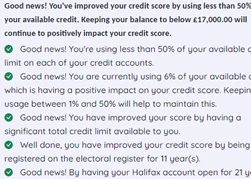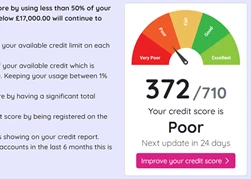Common Myths About Credit Scores Debunked

23rd Mar 2025
Credit score is a topic that is almost unknown to everyone and misconceptions are prevalent. Many people think that credit score is only important in getting a loan. But actually it affects your financial situation, loan acceptability, future loan prospects and many other factors. The common misconceptions we will talk about are very important. If you can be aware of the misconceptions, it can make your financial life a lot easier. Here are some common misconceptions about credit scores and loans. If you know the right information about credit score, you can get many advantages in your life. Through this you will be able to get loans easily and also maintain your financial stability.
Credit score is important not only for borrowers
While credit score is important for getting a loan, it also affects your financial life in many ways. A good credit score also benefits savings and investments. While paying off debt can have a negative impact on your score, it can also improve your financial planning, future financial security and reliability.
Impact of Credit Score: Importance in Savings, Buying Cars and Homes
Credit score affects your life in many ways, not just debt repayment. This can affect savings, even buying a new car or home. If you have a good credit score, you can get a loan at a lower interest rate. A credit score gives you benefits from banks, financial institutions and other services. A good score requires proper management.
Importance of credit score in everyday financial life
Credit score is not only useful when getting a loan, it also affects your day-to-day financial life. It is the eligibility criteria for all your loans including bank loans, car loans, home loans. So, it is always important to maintain and improve this score.
Credit score only counts for loan repayment
Many people think that only paying off debt can improve a credit score, but that's only one part. Payment history, credit utilization and loan type also affect credit scores. It is possible to improve your score through regular payments, debt management, and debt consolidation.
Strategies to improve credit score even after paying off debt
Even after you pay off the debt, if you do not manage your credit score properly, it is not possible to increase it. So regular debt repayments, limited credit utilization, and paying off old debt help improve your score. Especially when you maintain a good payment history by keeping your credit utilization low, it boosts the credit score.
Regular repayments and limited credit usage: ways to boost your score
The longer you make continuous payments, the higher your credit score will be. If you limit your credit utilization and make loan payments on time, these decisions will help boost your score. It also depends on the loan type, limit and loan management.
Credit score can never improve
Many people think that once a credit score goes down, it can never be improved. However, it can be improved again if the right steps are taken. This can be improved through regular payments, debt repayments, and the use of credit. Gradually your score will improve. If the credit score goes down, it may seem difficult to fix it, but if the right steps are taken, it will definitely improve. Make regular payments, reduce debt utilization, and pay off loans on time. With these steps your credit score will gradually increase. This is a process that takes time, but if you manage it properly and are careful with your credit usage, you will see a quick change in your score. It is an observational process, but you have to give it some time.
Credit score is important only for banks
Many people think that a credit score is only necessary when taking a bank loan. But in reality, it affects your life in many ways. Credit score also plays an important role in applying for a job, renting a house, leasing a car and other financial decisions.
The Importance of Credit Scores: Implications for Loans, Jobs, and Renting a Home
Credit score is not only necessary for getting a bank loan, it can also be necessary for getting a job and renting a house. Many employers hire an employee based on credit scores. To keep the score high you need to make regular loan payments and proper management.
Improved Credit Score: Its Role in Everyday Financial Decisions
You should always be aware of increasing credit scores. This is not only important when taking a bank loan or renting a house, but also affects day-to-day financial decisions. That is, this score becomes part of a life.
Loan is not possible if credit score is not good
Although a good credit score helps in getting a loan, it is not the only factor. Some lending institutions offer loans even with low scores. However, getting a loan with a low score may result in higher interest rates.
Advantages of high credit score and borrowing possibilities
If you can keep your credit score high, chances of getting a loan increase. However, some lenders also offer loans with low scores, but you may have to pay higher interest rates. On the other hand, the loan terms are more favorable if you have a good score.
To get a loan even with a low credit score
However, having a low score does not preclude access to credit. However, borrowing may come with onerous conditions, such as higher interest rates. So, pay the loan on time and manage it properly to keep the credit score high.
Conclusion:
Common misconceptions about credit scores can sometimes cause major problems in our lives. But with the right information, you can easily counter these misconceptions. A credit score is a very important factor in your life, which can affect getting a loan, finding a job, and even your future financial plans. It is not only a matter of debt repayment, but also a part of your financial security. However, with proper understanding and knowledge, you can easily improve your credit score and it will help you in many areas of your life. So, be aware and protect your financial life.
FAQ:
How are credit scores calculated?
Credit scores depend on various financial factors, such as repayment history, loan amount, and other financial behaviors. Regularity of loan repayments and your credit utilization play an important role in this. Check your credit score regularly and manage it properly.
Is credit score only required for loan repayment?
No, it's not just about paying off debt. Credit score helps determine your financial stability and future creditworthiness. It is also important in saving, investing and seeking employment.
How can I improve my credit score?
To improve your credit score, you need to make regular loan payments, manage your credit utilization properly and not take on any excess debt. Must maintain a good payment history and pay bills on time.
What are the benefits of improving credit score?
An improved credit score will allow you to get loans easier, get lower interest rates and enjoy other financial benefits. It increases your financial security and strengthens future planning.
Is it possible to get a loan if the credit score is low?
Yes, although a low credit score reduces the chances of getting a loan, some lending institutions offer loans even with a low score. But you may have to pay higher interest rates for this.
Don't risk missing
something important
Access a comprehensive credit report
that includes detailed data from TransUnion
View your credit score for only £1.95.
You can view it for 1 month, after which it will be £14.95 per month unless cancelled.
See How You Score

See How You Score
An Independent View Of Your Credit Score
Lenders typically use their own systems to calculate your Credit Score based on the information in your Credit Report, often checking with one or more Credit Reference Agencies. Your Credit Check Online Credit Score is derived from all the Credit Report information we gather from TransUnion, helping you understand how you might be assessed when applying for credit.

Understand What is Affecting Your Credit Score
Quickly see how the details in your Credit Report influence your Credit Check Online Credit Score, both positively and negatively. This clear overview helps you identify areas for improvement and better understand the factors that lenders consider when assessing your creditworthiness.
View your credit score for only £1.95.
You can view it for 1 month, after which it will be £14.95 per month unless cancelled.